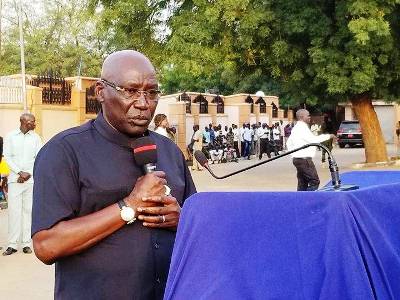South Sudanese official joins rebel movement
June 5, 2018 (LOL) – Omer Eshag Mohamed, a former information minister in South Sudan’s Lol state has announced his decision to join the opposition movement led by ex-army chief, Gen Paul Malong.

The official, who quit the state government in May, openly accused President Salva Kiir of failing to lead the South Sudanese population.
“It is without a doubt that President Salva Kiir does not have the interest of South Sudan at heart. He is the obstacle for achieving peace in South Sudan,” the former-Lol state minister further wrote.
He added, “The president has a false sense of entitlement and believes he deserves an incentive in order for us to attain the peace we have been yearning for”.
Announcing he had officially joined South Sudan United Front (SSUF), an opposition movement led by the former army chief of staff, Mohamed blamed recent collapse of the peace talks mediated by the regional bloc (IGAD) on President Kiir’s government.
Last month, the rival parties in South Sudan peace talks concluded the Second Phase of the High-Level Revitalization Forum (HLRF) without striking a deal on the implementation of the governance and security arrangements.
Tens of thousands pf people have been killed in fighting between troops loyal to Kiir and forces led by his former deputy Riek Machar since 2013. The conflict has also left a quarter of South Sudan’s population of 12 million, either internally displaced or as refugees in neighbouring countries.
